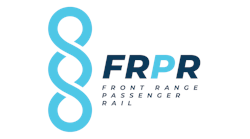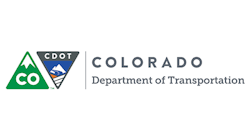Denver RTD completes comprehensive study to assess feasibility of providing Northwest Rail peak service between Denver and Longmont, Colo.
The Denver Regional Transportation District (RTD) has completed a comprehensive study to assess the feasibility of providing Northwest Rail peak service between Denver and Longmont, Colo. Denver RTD’s two-year study identified viable vehicle technologies, fleet and infrastructure needs, risk and mitigation strategies, capital and operating cost estimates and ridership projections for peak service delivery.
A final report summarizing the study’s findings was shared with Denver RTD’s Board of Directors during a Sept. 18 study session. No action was taken by the board during the session, as the meeting focused on updating and orienting the agency's directors about the study’s findings.
In April 2022, Denver RTD began efforts to study the feasibility of providing peak service––three weekday morning trips from Longmont to Denver and three weekday evening trips from Denver to Longmont––along the 45-mile corridor. The concept of Northwest Rail service was initially approved by voters in November 2004 as part of the agency’s FasTracks Plan.
“The completion of this feasibility study now provides [Denver] RTD and its customers and stakeholders with a common set of facts,” said Denver RTD General Manager and CEO Debra A. Johnson. “It was critically important for the agency to first assess all of the opportunities and estimated costs that would be associated with completing this unfinished FasTracks corridor. Having this information now empowers [Denver] RTD’s Board to be intentional as it makes future plans in support of the region’s mobility needs.”
The study’s project team identified regulatory constraints, infrastructure needs, fleet options and platform configurations, among other requirements for providing the rail service.
Denver RTD notes that due to a lack of sufficient funding to complete the Northwest Rail’s FasTracks corridor, the feasibility study explored options for providing the commuter rail service on BNSF-owned freight tracks. All other Denver RTD commuter rail lines operate on track that was built exclusively for passenger rail service so BNSF’s existing freight tracks would introduce operational, safety and regulatory challenges.
The agency says providing service on tracks that are shared with freight trains requires major infrastructure investment to the alignment, including upgrades to the track and communications systems and an agreement with BNSF. Since BNSF’s existing freight track lacks sufficient clearance for overhead electrification, a new rail fleet would need to be procured and introduced into Denver RTD’s operating environment. Providing non-electrified commuter rail services is unique to the agency.
According to the agency, the capital cost for providing the peak service is estimated to be $650 million and includes all costs associated with rail corridor improvements, rail vehicle acquisitions and the amount reimbursed to BNSF for train control, dispatch and track maintenance. The study estimates that providing peak service will annually cost between $12 and 16 million per year. Infrastructure assets will also require periodic renewal during operating periods to ensure a state of good repair long-term. Those ongoing costs were not identified in the study.
As part of the study, ridership forecasts were also prepared for the year 2030 and the number of customer boardings were found to be consistent with previous forecasts undertaken by the agency. The forecast, based on the Denver Regional Council of Governments (DRCOG)’s Travel Demand Model from 2019, shows approximately 1,100 boardings per weekday along the corridor, with the total number evenly divided between morning and afternoon peak periods.
In 2019, the state of Colorado delegated responsibility to the Colorado Department of Transportation (CDOT) to plan an intercity passenger rail service along the Front Range between Fort Collins and Pueblo. This work led to the formation of the Front Range Passenger Rail District (FRPRD) in 2022. Additional legislation passed in 2024 requires Denver RTD, CDOT and FRPRD to work together to determine the delivery of passenger rail services. Denver RTD notes opportunities exist for a combined approach for improving infrastructure on the corridor and provide service, either jointly or separately, while sharing the rail alignment. Included in that effort would be an allocation of costs and operational responsibilities.
All future decisions related to providing peak service will now be determined by Denver RTD’s Board.






